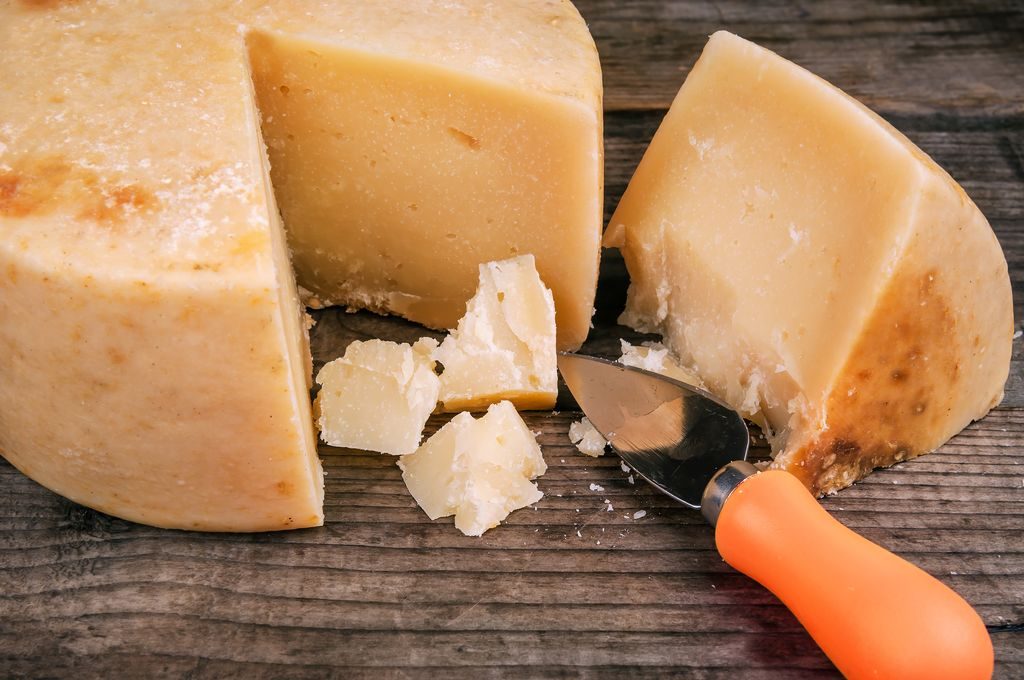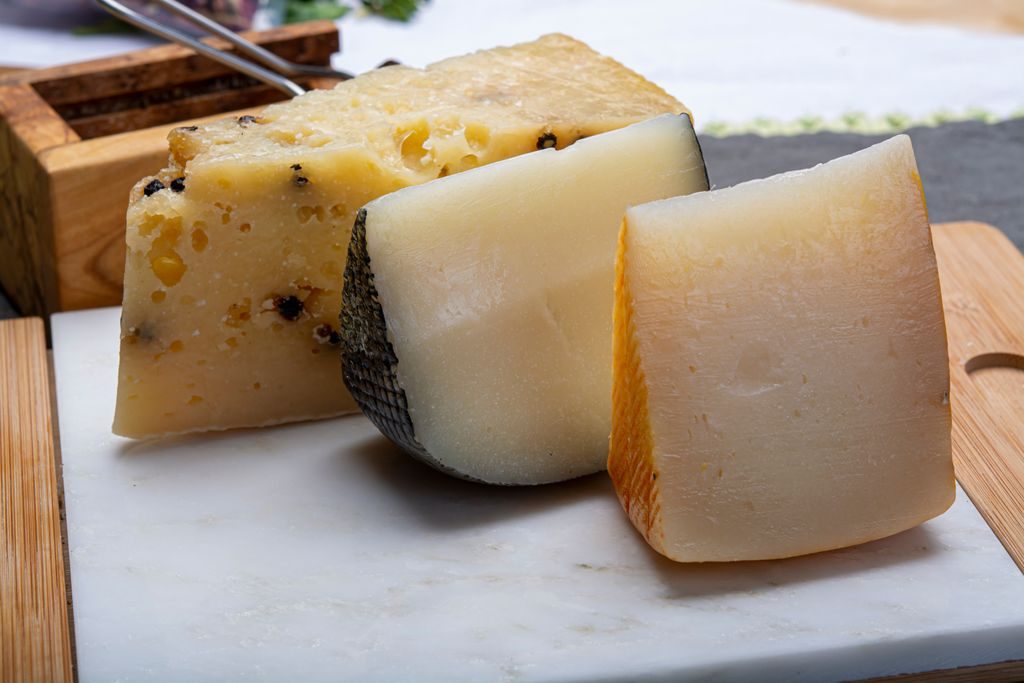Pecorino cheese
Pecorino is a mature cheese used in many Italian dishes. It is a fundamental ingredient of carbonara and amatriciana.

Pecorino is a pasteurised sheep’s cheese which originated in Italy. The name pecorino comes from the Italian word ‘Pecora’ which means ‘sheep’.
Pecorino is known for its intense flavour and the traditional production method. It is one of Italy’s oldest cheeses, It was a staple in the diet of the ancient Roman army and it is still made according to the original recipe.
Pecorino is shaped into large wheels and is left to mature. It is commonly sold sliced but you can also find it pre-grated. Top tip, try to buy sliced pecorino because it lasts longer and it has a better taste! You may also be able to find mini wheels that you can cut yourself.
Types of Pecorino

Probably the most famous type of pecorino is Pecorino Romano DOP. Pecorino Romano can only be made in Sardinia, Lazio and the province of Grosseto and must follow very strict production methods.
Pecorino Toscano and Pecorino Sardo also have the DOP stamp and have very different and distinctive tastes.
In addition, many producers add other ingredients to pecorino cheese to vary the taste and to make it more special: It is sometimes flavoured with black pepper, chilli, olives or truffles.
Pecorino in cooking
Because of its history and great favour its no wonder that pecorino is commonly used in Italian cooking. Pecorino is traditionally used in the Italian pasta dishes like amatriciana, and the utterly delicious carbonara!
Of course, there is the eternal debate when it comes to carbon, the question being asked over and over is: pecorino or parmesan? It all depends on personal preference, but pecorino is the traditional choice.
Pecorino is also served on cheese boards along with pears, ham, honey, grapes walnuts, crackers pickles and other delicious accompaniments.
Pecorino can also be used to in risotto, salads sauces and dips.
Pecorino nutritional information
Pecorino is rich in fats and proteins, but also in vitamin B12 and retinol. 100 grams of pecorino contains about 387 calories.
Due to how its produced pecorino contains little to no lactose and, therefore can be consumed by those who have lactose intolerance.
In pregnancy, non-pasteurized raw milk cheeses should be avoided, but pecorino is an exception due to the long maturing process.
Most kinds of pecorino are made using rennet and are consequently not suitable for vegetarians. However, there are vegetarian pecorino alternatives on the market.




